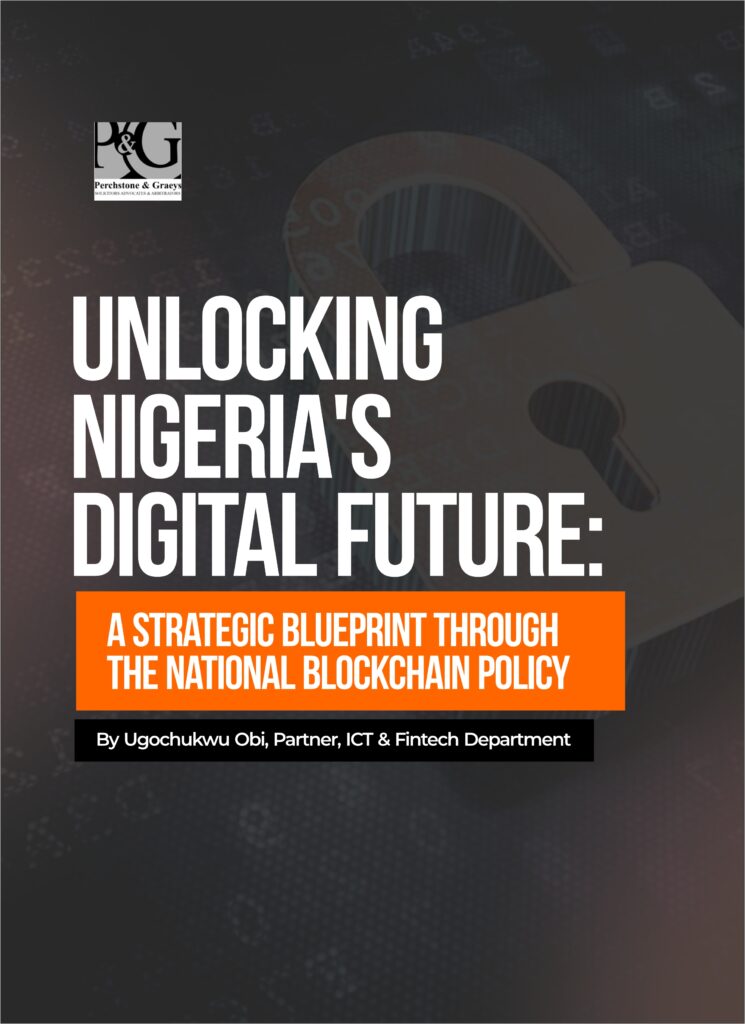In an era where digital transformation shapes economies and societies alike, technology offers nations unprecedented opportunities to redefine their economic landscapes. Nigeria, with a vibrant population of over 200 million and substantial untapped potential, has recognized blockchain technology as a powerful tool to drive innovation, enhance efficiency, and build a resilient digital economy. By launching its National Blockchain Policy in May 2023, Nigeria has set forth a visionary plan to leverage blockchain across multiple sectors, laying a robust foundation for the country’s digital future.
At its essence, blockchain technology is a decentralized, distributed ledger that records transactions in a secure, immutable, and transparent manner. Although initially popularized by cryptocurrencies like Bitcoin, blockchain’s applications extend far beyond digital currencies. Its fundamental principles of transparency, immutability, and security make it suitable for a range of processes and sectors, from finance and supply chain management to public administration. With this understanding, Nigeria’s National Blockchain Policy aims to harness these attributes to create a digitally advanced society.
One key area where blockchain promises transformative potential is financial inclusion. Despite having a well-developed financial sector, a significant portion of Nigeria’s population, especially those in rural areas, remains unbanked. Blockchain technology can bridge this gap by enabling secure digital wallets, peer-to-peer transactions, and streamlined microfinance services, allowing more Nigerians to access financial services and participate in the economy. This shift could open avenues for small businesses and empower individuals to build financial independence, stimulating grassroots economic growth. Nigeria’s significant role in global remittances further underscores blockchain’s potential. By streamlining cross-border transactions, reducing costs, and making financial services more accessible, blockchain could redefine remittances for Nigeria, amplifying the financial ecosystem.
Blockchain also holds vast potential in optimizing Nigeria’s supply chains, particularly within agriculture, manufacturing, and trade. Current supply chain processes in these sectors are plagued by inefficiencies, lack of transparency, and fraud risks. Blockchain’s ability to provide real-time, traceable data across the supply chain could bring much-needed visibility and trust. With blockchain, goods can be tracked from origin to end consumer, making fraud harder to perpetrate and quality assurance easier to enforce. Such transparency can enhance the appeal of Nigerian goods on the global stage, attracting foreign investment, supporting local industries, and building a more resilient economy.
In the realm of identity management, blockchain presents an innovative solution for creating secure, verifiable digital identities. Establishing a robust digital identity framework is essential for social and economic development. By adopting blockchain for identity management, Nigerians could have digital identities that enable them to access essential services like healthcare, education, and government benefits securely and privately. Such a system would combat identity theft, streamline public services, and promote social inclusion, allowing more Nigerians to participate fully in the economy.
Nigeria’s creative industry is another sector set to benefit from blockchain technology, particularly concerning intellectual property (IP) protection. The country is home to a burgeoning creative sector, yet artists, musicians, and other creators often struggle to protect their intellectual property. With blockchain’s capability to produce tamper-proof records, creators can register their works on the blockchain, which would ensure that their IP rights are secured through smart contracts. This enhances IP protection, fosters innovation, and attracts investors to Nigeria’s creative industries by guaranteeing that creators’ rights are respected.
The government sector is perhaps one of the most promising areas for blockchain implementation. Blockchain technology could drastically improve public service delivery by digitizing and automating various bureaucratic processes. For example, smart contracts could facilitate land registration, tax collection, and procurement with minimal human intervention, reducing both the time required for these processes and the potential for corruption. Blockchain’s transparency can restore public trust in governmental institutions by making processes more accessible and accountable.
To bring the National Blockchain Policy to fruition, Nigeria has outlined several strategic components for implementation. Infrastructure development is a critical first step, focusing on building the technological foundations needed to support a thriving blockchain ecosystem. This includes investing in high-speed internet, expanding data centres, and integrating blockchain-enabled devices nationwide. By establishing a reliable infrastructure, Nigeria can attract both local and international investors, creating a fertile ground for blockchain-driven growth.
Developing a skilled workforce is equally essential. The National Blockchain Policy includes provisions for education and training programs aimed at universities and technical institutions to cultivate a new generation of blockchain experts. Through these initiatives, Nigeria aims to foster innovation and build a workforce capable of sustaining its digital economy.
Regulation plays a pivotal role in the successful adoption of blockchain technology. Nigeria’s policy emphasizes crafting a clear, balanced regulatory framework that facilitates blockchain adoption while ensuring consumer protection and national security. To that end, the policy encourages collaboration between government agencies, industry stakeholders, and blockchain experts to create regulations that foster innovation and safeguard citizens.
Strategic partnerships are central to Nigeria’s approach. By forming alliances with international organizations, industry leaders, and blockchain consortia, Nigeria aims to leverage global expertise and resources. Such partnerships will promote knowledge-sharing, technology transfer, and investment, further accelerating blockchain adoption in the country.
The National Blockchain Policy promises numerous benefits for Nigeria. By capitalizing on blockchain, Nigeria stands to unlock economic opportunities, attract foreign investment, and create new jobs. The financial inclusion enabled by blockchain can reduce poverty and promote economic stability by integrating the unbanked population into the formal financial system. Additionally, blockchain can restore trust in institutions through transparency and data integrity, fostering accountability in public and private sectors alike. Data security and privacy are becoming ever more critical, and blockchain’s decentralized structure offers enhanced protection against cyber threats, ensuring data resilience and sovereignty. Moreover, the policy aligns with Nigeria’s commitment to sustainable development, as blockchain-enabled transparency can be applied to track environmentally responsible practices and promote economic stability.
Nigeria’s National Blockchain Policy is a bold and ambitious roadmap for digital transformation. By embracing blockchain, the country is positioning itself as a leader in Africa’s digital revolution and signaling its readiness to harness technology for inclusive and sustainable growth. Through careful planning, strategic partnerships, and targeted investment, Nigeria is poised to realize a digital economy where blockchain drives transparency, efficiency, and innovation. In doing so, the country is laying the groundwork for a prosperous, tech-enabled future, ready to meet the challenges and opportunities of the global digital economy.


